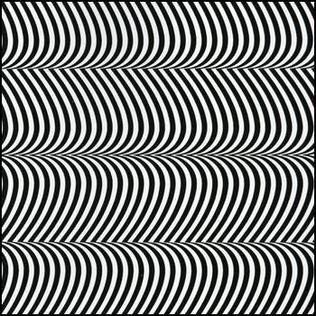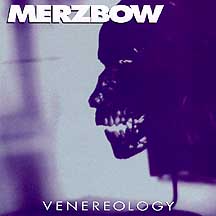Merzbox is a box set compilation by the Japanese noise musician Merzbow. It consists of 50 CDs spanning Merzbow's career from 1979 to 1997. 30 discs are taken from long out of print releases, while 20 are composed mainly of unreleased material. The box also contains two CD-ROMs, six CD-sized round cards, six round stickers, a poster, a black long-sleeve T-shirt, a medallion, and the Merzbook, all packaged together in a "fetish" black rubber box. It is limited to 1000 numbered copies. A Merzbox Sampler was released in 1997.

Pulse Demon is an album by the Japanese noise musician Merzbow, released 28 May 1996. The album was reissued on vinyl in May 2018 by Bludhoney Records, and again in November 2019 by Relapse, with a bonus track.

Venereology is an album by the Japanese noise musician Merzbow. It was inspired by death metal and grindcore.

Sha Mo 3000 is a studio album by Japanese noise musician Merzbow. It was released in October 2004 by the Brazilian label Essence Music in standard and deluxe editions, and is his first release for the label.

This is a comprehensive discography of the Japanese noise musician Masami Akita, best known for his project Merzbow. Since 1980 he has released hundreds of recordings, collaborated with dozens of musicians, contributed over two hundred exclusive tracks to compilations, and made numerous guest appearances on recordings by other artists.

Turmeric is a box set album by the Japanese noise musician Merzbow. It marks Merzbow's return to using metals and feedback since switching to computers. The album art depicts Masami Akita's pet Silkie chickens, which have black skin and bones. They are also referred to on Animal Magnetism and Higanbana.

Noisembryo, subtitled Psycho-Analytic Study of Coital Noise Posture, is an album by the Japanese musician Merzbow.

Merzbow is a Japanese noise project started in 1979 by Masami Akita. Merzbow is best known for a style of harsh, confrontational noise. Since 1980, Akita has released over 400 recordings and has collaborated with various artists.

Camouflage is a studio album by Japanese noise musician Merzbow. It was released on January 14, 2009 by the Brazilian label Essence Music in standard and deluxe editions, and is his second album for the label.

13 Japanese Birds is a 15 album series by the Japanese noise musician Merzbow. It was inspired by Olivier Messiaen's Catalogue d'oiseaux, but has no direct musical relationship.

Eucalypse is an album by the Japanese noise musician Merzbow. The title is a combination of apocalypse and eucalyptus.

Antimonument is an album by the Japanese noise musician Merzbow. It was originally released as a picture disc LP and reissued on CD by Art Directe in 1991. The CD is now considered a bootleg since the label did not pay the artists.

Merzbient is a boxed set album by the Japanese noise musician Merzbow, it is composed of previously unreleased raw material recorded 1987–90.

Lop Lop is a studio album by the Japanese noise musician Merzbow. It was released on December 3, 2011 by the Italian label Rustblade, and is his first release on the label. The title is a reference to Loplop, a bird-like alter ego of dada and surrealist Max Ernst. Rustblade says that Lop Lop is "a step in a new direction" and that "synths and guitars scream and sing in a way which allows them to be heard through all the oppressive noise".

Batztoutai with Material Gadgets, subtitled De-Composed Works 1985~86, is a double album by the Japanese noise musician Merzbow. It is a remixed reissue of the 1986 album Batztoutai with Memorial Gadgets with a bonus disc of loops recorded at the same time.

Kibako is a studio album by the Japanese noise musician Merzbow. It was released on December 12, 2012 by the Italian label Rustblade, and is his second release on the label. Rustblade describes the album as consisting of "tribal wooden instruments, violent analogue synths and ambient soundscapes".

Duo, subtitled Masami Akita & Kiyoshi Mizutani Selected Studio Sessions 1987–89, is a box set album by the Japanese noise project Merzbow. It is composed of unreleased studio sessions recorded with Kiyoshi Mizutani. Some of these recordings were used as raw material for solo releases like Scissors for Cutting Merzbow, but the original recordings were unreleased until now. These recordings mirror albums like Ecobondage, Enclosure, and Storage. The art edition comes with a bonus CD with a recording from 1979.

Tamayodo is an album by the Japanese noise musician Merzbow. It is described as "monotonic electro pulse-noise works by all analogue equipments."

Konchuuki is a studio album by the Japanese noise musician Merzbow. It was released on August 11, 2015 by the Brazilian label Essence Music in standard and deluxe editions, and is his third release for the label.

Gensho is the fourth collaborative studio album and seventh release by the Japanese experimental band Boris and noise musician Merzbow. It is presented in two parts; the first disc features re-recordings of several Boris songs and a cover of the My Bloody Valentine song "Sometimes" in drone-based, drumless style, while the second disc consists of new compositions by Merzbow. They are intended to be played at the same time, much like the previous Boris double album Dronevil, or as separate works.



















